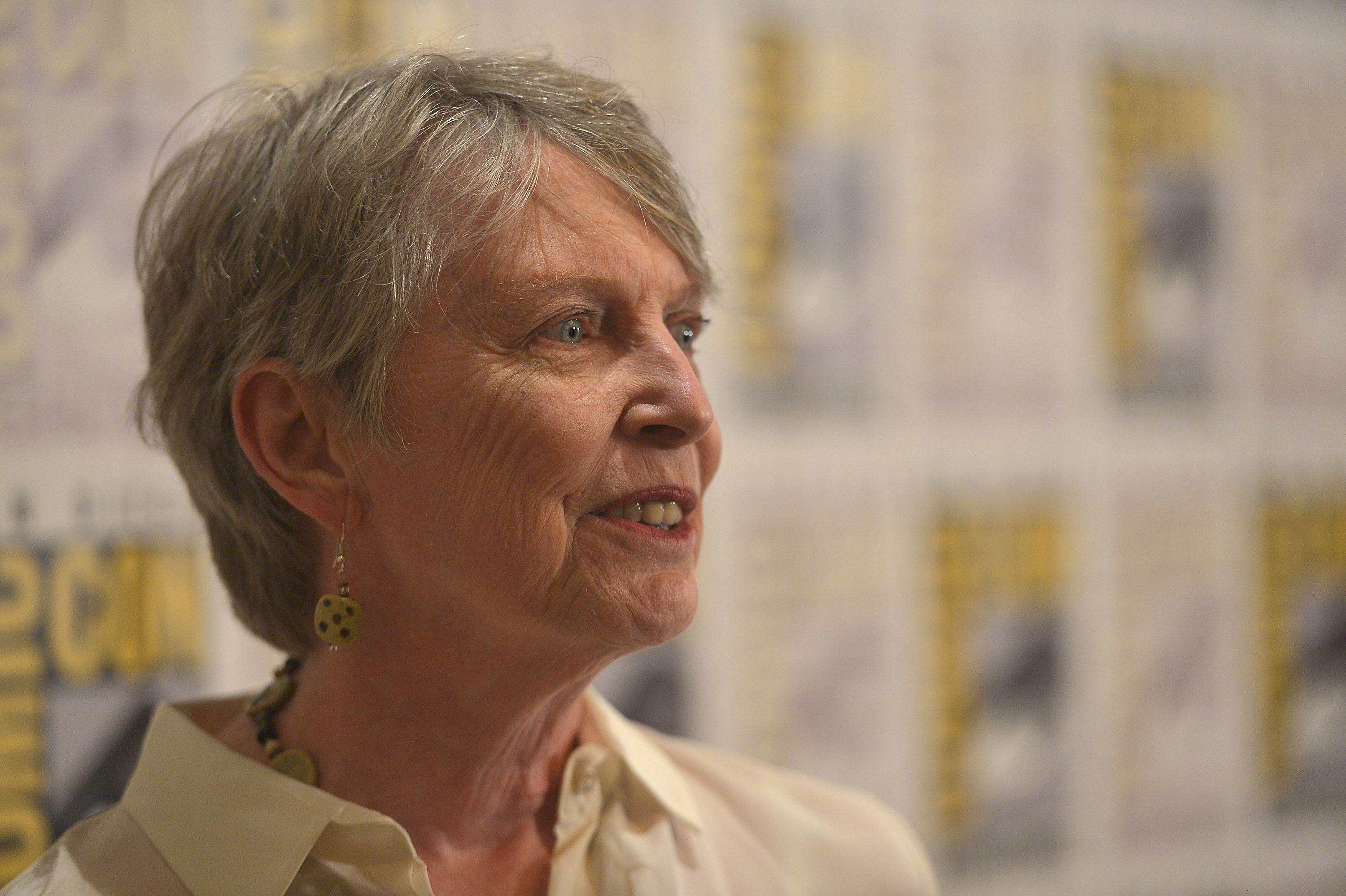Since Lois Lowry’s The Giver was first published more than 20 years ago, it’s earned a Newbery Medal, become a staple of the classroom, sold millions of copies, and taught multiple generations to battle conformity. With the book—set in a totalitarian community in which “sameness” is championed and there is no pain (or beauty)—Lowry showed a willingness to speak frankly to young people about dark themes: war, infanticide, eugenics. The film has been in the works nearly since publication, and has attracted some big Hollywood names: Meryl Streep, Jeff Bridges, Katie Holmes, Alexander Skarsgård, and a fleeting cameo from Taylor Swift (spoiler alert, she appears as a hologram).
On the eve of the movie’s premiere Friday, Lowry talked to Slate about why she doesn’t dig comparisons to The Hunger Games and how she accidentally threw her weight around in the editing room.
People have very strong feelings about this book. For me, it was the gateway book to a life of bookwormishness, but more strikingly, it endowed me with deep skepticism of conformity. Do you hear this often? What effect does this have on you?
I do hear it often, and am always deeply touched by the response. I like your phrase “skeptics of conformity.” It was something I felt deeply as a child though I would not have known what to call the feeling. I grew up on military bases because my father was a career army officer, and I was always vaguely at odds with the rigidly ordered lives that they valued and that I was for the most part forced to live. In 1952, when I was 15 and living on Governors Island, which was then First Army Headquarters, I encountered the newly-published The Catcher in the Rye. Of course that book became the iconic anti-establishment novel for my generation. And The Giver has been that for many of today’s kids: the book that confirms their feeling that the governing body, be it president or parents, may be getting it wrong.
Jeff Bridges has been very committed to The Giver throughout, originally buying the screen rights and intending for his father to be cast in the role of the Giver. Do you know what specifically spoke to him about the book?
He describes having first been attracted to the photograph of the old man on the original book jacket—then reading the book and perceiving the depth of ideas and the powerful questions raised by the story. I don’t think he saw it as having either political or theological implications—as some others have—but rather as a statement about what it means to be fully human.
In the book the community seems outside of history and place. How did you feel about the decision to show specific historical figures and events in the movie? I’m thinking of specifically the shots of Nelson Mandela and Tiananmen Square.
I loved those images and that decision. The Tiananmen Square image in particular represented for me what the book is about: the possibility for young brave people to change the world.
Are you tired of people comparing this book and movie to The Hunger Games and Divergent?
Well, on the surface it seems an obvious comparison, so it is not surprising that it is made, often. But The Giver is so different from those books or movies. So much quieter, so much more introspective. I think a much apter comparison would be to Never Let Me Go, a very quietly powerful futuristic book and movie.
Why are we seeing so much dystopian fiction right now?
Bandwagon syndrome, I think. Hop aboard, join the parade! It will end soon, I think, and be supplanted by a new trend.
Are there other movies based on your books in the works?
Sean Astin has been trying for some time to get Number the Stars made into a film. His passion for this book reminds me of Jeff Bridges’ passion for The Giver.
How do you think it changes the story for the movie’s child characters to be older than they are in the book?
At first I was very troubled by that decision. But then I met Brenton Thwaites, who plays Jonas, and saw that though he was 23, he looked 16. And the structure and isolation of the community meant that the children of the community remained very childlike, unsophisticated. It began to seem OK. And it allowed for an expansion of the potential audience—teenagers as rule don’t want to go see a movie about 12-year-olds—as well as an expansion of the roles, so that, for example, the 16- or 17-year-old Jonas would indeed, as he acquires feelings, be attracted to his friend Fiona. It works well in the movie. I asked them please not to turn it not a teenage romance, though, and I think they did manage to avoid that pitfall.
Were there other ways in which you were advising the filmmakers?
“Advising” is perhaps too strong a word, implying that I had some official role. I didn’t. I was very concerned about being overly intrusive and I never lost sight of the fact that it was their project, not mine. The entire crew—producers, director, writers, actors—all showed enormous courtesy (and sometimes patience) by listening to my comments throughout the process and paying attention to my opinions. When Phillip Noyce, the director, heard me reply to a question about “control”—saying that no, I had none—he corrected me and said that I had more control than I realized. Then I remembered that once, alone in the editing room with the editor, I had muttered: “I hate that one line of dialogue.” Next thing I knew, several days later, it was—POOF!—gone. Apparently my grumpy muttering had been reported and paid attention to! It was, incidentally, a horrible line.
This interview has been condensed and edited.
